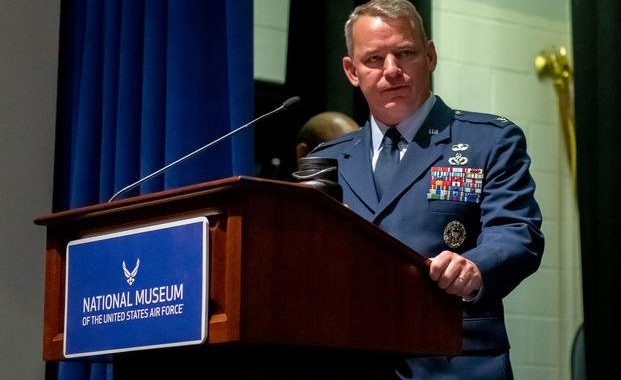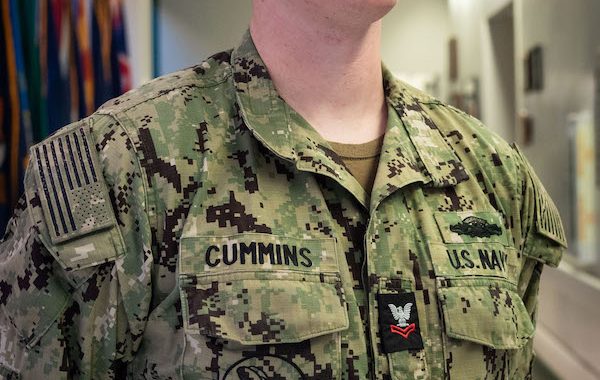‘We’ve got to do better:’ Senators plead for improved response to veterans suicides after report reveals hotline failure
5 min read
The Department of Veterans Affairs must improve mental health care access for veterans with suicide risks, senators told VA officials in the wake of an inspector general report that found problems with the agency’s crisis hotline for suicide prevention.
The Department of Veterans Affairs must improve mental health care access for veterans with suicide risks, senators told VA officials on Wednesday in the wake of an inspector general report that found problems with the agency’s crisis hotline for suicide prevention.
“We’ve had so damn many hearings on mental health, and it doesn’t seem like anything has changed,” Sen. Jon Tester, D-Mont., told VA officials during a hearing of the Senate Veterans’ Affairs Committee. “There’s no doubt in my mind that you want to do your best for veterans, and you’re trying to do the best for your veterans.
“But this is really frustrating for me to say, but we’ve got to do better. We just have got to do better.”
Wait times to see mental health specialists are too long, and too few veterans at risk for suicide are actively in the VA’s health care system, multiple senators said. New authorities for expanded mental health care access via telehealth have been implemented too slowly, Tester told Matthew Miller, the executive director for suicide prevention at the VA’s Veterans Health Administration.
The committee would “probably give you anything you asked for when it comes to mental health,” Tester, who is the chairman of the Senate panel, told Miller. “We just need to make sure that what you’re asking for is something that can actually make a difference.”
Suicides are multifaceted and complex, Miller told the committee, thanking senators for granting the VA several new authorities via legislation in recent years that are helping the department improve.
The VA’s most recent veteran suicide statistics show a slight decrease in suicides among veterans in 2020, but suicides among Americans with military service time far outpaced the rate among civilians. That year, 6,146 veteran deaths were ruled suicides. Data for 2021 is expected to be released in the coming months.
Nonetheless, Miller acknowledged the VA faces many challenges in suicide prevention from technical issues implementing telehealth services to a shortfall of qualified mental health specialists to hire.
“With no single cause, there is no single solution to suicide for veterans,” he said.
The hearing came just days after the VA inspector general published a report that found a Texas veteran died by suicide within an hour of receiving subpar help from the VA’s Veterans Crisis Line in 2021.
The IG report released Sept. 14 found crisis line responders failed to recognize the veteran’s suicide risk or implement a prevention plan after engaging in a 75-minute, 80-text conversation. The veteran — a male in his 30s with diagnosed post-traumatic stress disorder, major depressive disorder, alcohol-use disorder, obstructive sleep apnea and documented past suicidal behavior — advised he was in a “shed with a belt around a hook that hangs from the rafters of the shed.” Less than an hour after the crisis line conversation, the veteran hanged himself, the investigation found.
In that incident, crisis line staff also failed to properly document communications with the veteran and failed to inform local VA officials in Texas about the death, according to the IG. The inspector general also found the VA was not properly monitoring or reviewing responders’ conversations and actions with potentially suicidal veterans to ensure the highest quality of care.
Miller said Wednesday that the crisis line has since improved. The VA has installed silent monitors to track call responders’ actions and is working on improving its ability to maintain records of text messages.
The VA’s crisis line has grown in use in recent years. The hotline received more than 750,000 calls before July 2022 to July 2023, about a 12.5% increase from the previous year. Another 250,000 veterans contacted the crisis line via text or chat message during that time, according to the VA.
Miller said the VA has vastly expanded its crisis line, hiring more than 900 individuals to work as responders and quality controllers since 2021 when it had about 550 responders. He told lawmakers that he believes the problems highlighted in the IG report have largely been addressed, and more improvements are imminent.
“I, as a veteran, grieve the loss of this veteran. From the painful lens of retrospective review, we wish we could have done some things differently. It’s our earnest desire and pledge to apply the wisdom gained through this review to strengthen processes as we continue to serve veterans, who are at the center of all we do, even at this very minute as we answer calls,” Miller said. “We’re better than what was depicted in that report, and we have to do better than what was depicted in that report.”
Senators from multiple states lamented the wait times that veterans face in attempting to receive care from the VA, including mental health care. Sen. Marsha Blackburn, R-Tenn., said waiting periods in her home state stretched from about one week in Nashville to more than 90 days at a rural clinic in northern Tennessee.
“I hear a good bit about this” from constituents, Blackburn said. “This access issue is one we have got to solve.”
Miller said the VA is working toward ensuring veterans in crisis receive immediate mental health care when they need it. If a veteran is in crisis, he should be seen at a local clinic, he said.
“Same day access is the first step that should be in place at every local facility regarding this,” he told senators. “That’s what should occur.”
Sen. Angus King, I-Maine, said the VA needed to speed up its telehealth improvement efforts to decrease wait times and better respond to veterans when they face a crisis, such as suicidal thoughts. Miller agreed.
“I think telehealth is an opportunity to provide the care nationwide that perhaps might not be available, particularly in a rural area,” King said. “What I hear from my veterans in Maine – they really like the care they are getting from the VA … The question is access — when do they get the care? And that’s a large issue.”





